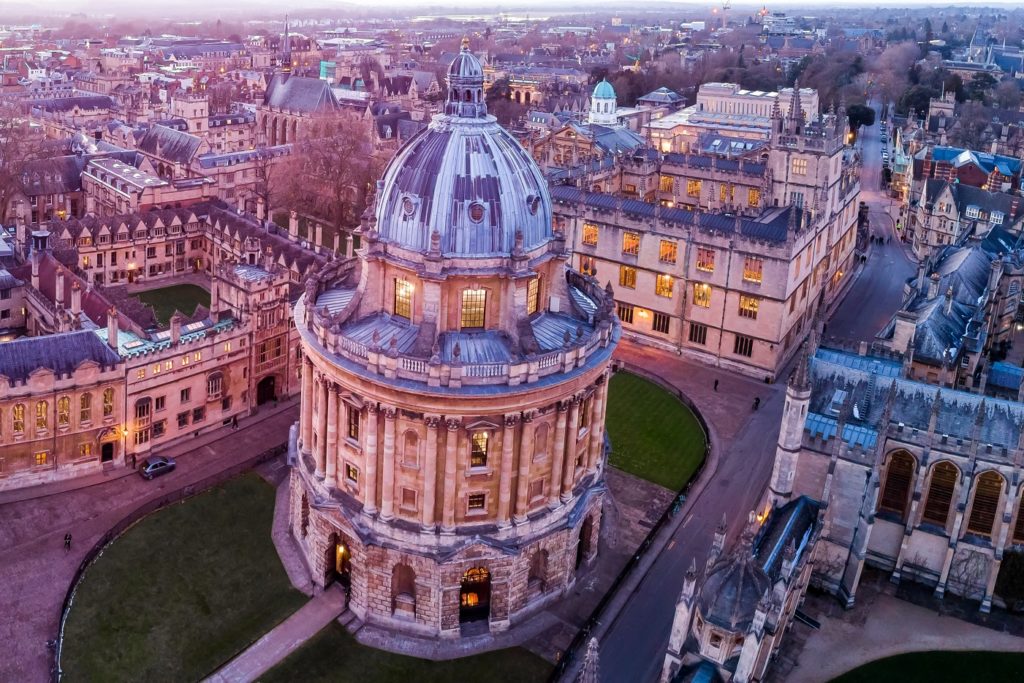Recent Florida legislation on intellectual or viewpoint diversity has brought back into the news that perennial topic, the leftwing domination of the academy. A number of studies have shown that scholars with strong leftist political sympathies outnumber those of moderate or conservative sympathies by several orders of magnitude.
The effect has been, in the eyes of most people, grotesque: resting secure in their echo chamber, these supposed intellectuals seem to be scrambling to outdo each other in the race to make ever more outlandish claims about society and reality as a whole. When patent absurdities become not merely more and more common but the stock-in-trade of the contemporary academy, what is to be done?
The Florida legislature has, predictably, responded with a law. But the law, as Thomas Aquinas tells us, is a limited and blunt instrument. For many things, especially inward things, positive law proves ineffectual altogether. The legislation calls for faculty to be questioned about their political beliefs, in hopes of ensuring at least some claim to possess conservative views. This seems as likely to produce a handful of liars as it will a genuine conservative presence on campus.
The recent Florida legislation aiming at “viewpoint diversity” seems as likely to produce a handful of liars as it will a genuine conservative presence on campus.
Start your day with Public Discourse
Sign up and get our daily essays sent straight to your inbox.Knowledge As Power
To put the current academic consensus in general terms: only scholarship that seeks to view reality in materialist terms, and politics through the lens of what the Marxists call “historical materialism,” is considered legitimate. The interpretation of reality exclusively through the matrix of political power, and of the human person as a mere subject of such power, alone is counted as compelling knowledge. The hapless scholar of the Catholic novel, for instance, would be dismissed out of hand, insofar as the scholarship suggests such things as the soul, the transcendent drama of human existence, and the divine should be taken seriously. One may deconstruct such things and reduce them to ideological exercises of power. To think of them as real in themselves, however, would be to expose one’s gauche piety, the sooner disillusioned the better.
These developments in the academy resulted from two basic decisions modern persons in general, and intellectuals in particular, have made. The first decision was to consent to the postulate that an objective knowledge of reality will always conclude that only material things are real. The second decision was to observe that only physical force acts on matter and so all ideas must finally be resolved into force as well. Power, and power alone, shapes the matter of reality.
Once these decisions have been made, any claim that there is more to the world than the philosophy of power may be dismissed out of hand. Scholarly “excellence” becomes simply a matter of conforming to these principles and describing the world in their terms. “Excellence” becomes the token designation for those who have found clever ways to demonstrate their adherence to the orthodoxy of impoverishment.
One familiar response to this new orthodoxy is to ask scholars to take off the ideological blinders—to set aside their own personal concerns, their subjective biases, in the name of objective, disinterested inquiry. Question everything. Assume nothing. Let the facts lead where they will. Such a call ignores that it was the quest for a certain kind of “objectivity” and “disinterestedness” that brought the modern condition about in the first place. By viewing reality exclusively in terms of matter and force, we reduce it to those objects over which we can exercise control. We treat as knowledge only that of which we can make use. This is what Francis Bacon meant, when he said, “knowledge is power.” He did not intend that knowledge nourishes and strengthens the soul, but that only what gives us power really counts as knowledge.
One familiar response to this new orthodoxy is to ask scholars . . . to set aside their own personal concerns, their subjective biases, in the name of objective, disinterested inquiry. . . . Such a call ignores that it was the quest for a certain kind of “objectivity” and “disinterestedness” that brought the modern condition about in the first place.
Another Way
Let us consider another and older way. The idea of “disinterested” inquiry has its origins in the classical philosophers. If we return to those philosophers, however, we shall see that disinterested inquiry makes for a very poor interpretation of what they sought.
Consider, first, the figure of Socrates, in Plato’s Apology. Brought before the court of citizens on a number of false charges, Socrates proceeds to demonstrate his innocence. He insists that his accuser, Meletus, does not himself believe the charges, but merely dislikes Socrates. So does nearly everyone, Socrates explains. He has received an oracle from the god that commands him to question everyone to find out who, if anyone, is truly wise. Socrates has gone from person to person, interrogating everyone who claims to be wise. As he questions them, he discovers that they think they know something but in fact really know nothing.
Such a procedure is bound to annoy everyone, Socrates confesses. That is why he has refrained from political life. Only in private life can one go about questioning without either having to compromise the pursuit of truth for the expediency of getting along or being attacked and killed outright. Inquiry into wisdom apart from the political realm: that is what we mean by “disinterested” scholarship.
But Socrates is not merely disinterested. The god has commanded him to live as he does. A daemon dwells within him and compels him to act one way and not another. And we know that this activity of inquiry into the nature of wisdom has a singularly “interested” name: philosophy, the love of—the yearning, the desire, for—wisdom. Socrates cannot be understood in terms of the questions he asks but only in reference to the love that impels him to interrogate others.
Meletus has accused Socrates of impiety, of not believing in the gods. But, in raising false charges, Meletus has exposed himself as the impious one; if he truly believed in the gods, he would fear to speak dishonestly. Socrates, in contrast, obeys the god and shows himself to be the true model of devotion, as he sacrifices his reputation and even his life for the love of wisdom. His willingness to die—which he states explicitly—testifies to the reality of truth, truth’s transcendence of political force, and the necessity of living according to the standard of truth rather than the dishonest practices of political expediency.
Socrates cannot be understood in terms of the questions he asks but only in reference to the love that impels him to interrogate others.
The Love of Knowledge
A generation on, Aristotle would critique Plato’s philosophy, and do so saying he preferred truth to friendship. Might Plato and Socrates not just have been a false start for disinterested inquiry, and Aristotle the belated, real thing?
To the contrary, Aristotle merely states more directly what Socrates teaches by indirection in the Apology. In his most important work, the Metaphysics, Aristotle begins by elaborating Socrates’s “erotic” account of wisdom:
All human beings by nature stretch themselves out toward knowing. A sign of this is our love of the senses; for even apart from their use, they are loved on their own account, and above all the rest the one through the eyes. For not only in order that we might act, but even when we are not going to act at all, we prefer seeing, one might say, as against anything else.
According to Aristotle, two fundamental facts shape human life. We are intellectuals down to our matter: not only our minds “stretch themselves out” toward knowing, but even our bodies, with the eyes set prominent and high like stars in the sky, seek to know, that is, to see the truth. Because we are born intellectuals, and all things are defined by the end they seek, the good thing they love, we are also intellectuals by desire. We love knowledge long before we possess it. We are born, reaching out for truth even from the moment that, as infants, we reached out to clasp our mother’s finger.
But perhaps our instinctive love of knowledge is just, as it were, the first ideology. That is what Friedrich Nietzsche claims in Beyond Good and Evil, where he mocks the idea of a “will to truth.” Desiring does not make it so. Perhaps a firm stretching out toward reality will lead reality to slap us in the face, telling us that there is nothing worth loving, for only power is real. Aristotle has an answer for this, which he delivers just a page further on in the Metaphysics:
By way of wondering, people both now and at first began to philosophize, wondering first about the strange things near at hand, then going forward little by little in this way and coming to impasses about greater things, such as about the attributes of the moon and things pertaining to the sun and the stars and the coming into being of the whole. But someone who wonders and is at an impasse considers himself to be ignorant (for which reason the lover of myth is in a certain way philosophic, since a myth is composed of wonders).
We stretch out toward the world in wonder only because the world is full of “strange things.” One can only wonder about the world because the world is first wonderful; the wonder of things existing precedes our wondering about them. The world compels us to philosophy; our desire for knowledge is merely a response to what the world first demanded. The lover of myths is not the ignorant, credulous devourer of illusions, soon to be replaced by the philosopher who can see with disillusion the bareness of things. Poetry, that re-teller of myths, is itself a kind of philosophy. And philosophy, with its love of wonder, is a kind of poetry.
One can only wonder about the world because the world is first wonderful; the wonder of things existing precedes our wondering about them. The world compels us to philosophy.
The Mystic Vocation of the Intellectual Life
The intellectual life is intrinsically interested. It is interested in the truth. It is the way of living in the world that dwells in the wonder of things. It may even be described as a kind of “mysticism.” Nietzsche himself confesses in Beyond Good and Evil that the mystics have defeated his cynical analysis.
The contemporary academy betrays its vocation precisely insofar as it seeks to usurp the wonder of the world and to transpose that wonder onto its own ingenuity. “Look,” says the contemporary scholar, “let me show you how this-or-that is really just an exercise of power. I alone have had the vision to see it.”
This brings us back to the question of “conservative” professors. The partisan designations of liberal and conservative are, on the whole, too vague to be much help in understanding the intellectual life. We hear, for instance, that only in Economics are professors frequently, not to say mostly, “conservative.” I presume that means they support free markets. That’s a sound and defensible position, but it is also one that operates comfortably within the framework of the impoverished reality and political reduction that reigns in the contemporary academy. If power is the only reality, the “conservative” economist simply claims that power becomes rational in the free market. That is a pretty modest claim—though it’s probably preferable to the de facto agenda of the contemporary academy to “rationalize” power by seizing it and transforming society to conform to its utopian dreams.
From what I have seen, after two decades in the academy, is that those rare “conservative” intellectuals one stumbles upon are conservative in a different and more profound sense. They take seriously the priority of the wonderful to their own habits of wonder. They respond in gratitude to the wonder of the world and seek to contemplate it and to initiate others into the joy of inquiry. Because the wonder of the world comes first, they acknowledge that there is more to the world than bare matter subject to manipulation by the use of power. Indeed, power has to be understood in light of that first movement of the infant to take hold of its mother’s hand: all power, all motion, all things have to be understood in the context of love. Perhaps the legislation we need is one that requires not just some, but all faculty, to possess souls formed by the love of wonder and truth.














